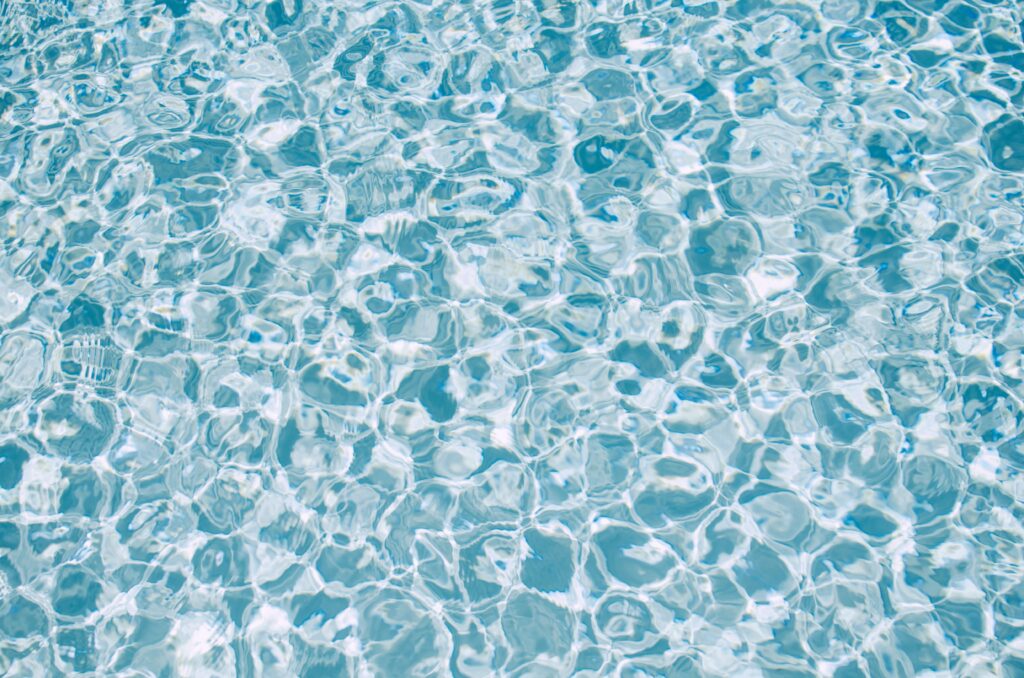If you’ve ever wondered about the difference between hard and soft water, you’re not alone. Many people who embark on DIY plumbing projects find themselves faced with this common question. Understanding the distinction between the two types of water is essential, as it can have a significant impact on various aspects of your daily life. In this article, we’ll explore the dissimilarities between hard and soft water, helping you gain a clearer understanding of this crucial distinction.

This image is property of images.unsplash.com.
What is hard water?
Definition of hard water
Hard water is water that contains high concentrations of dissolved minerals, particularly calcium and magnesium. These minerals are picked up as the water passes through rocks and soil, resulting in its hardness.
Causes of hard water
The primary cause of hard water is the presence of calcium and magnesium ions. When rainwater falls, it is naturally soft and free from minerals. However, as the water percolates through the ground, it dissolves minerals from rocks and soil, leading to its hardness.
Effects of hard water on plumbing and appliances
The high mineral content in hard water can have several negative effects on plumbing and appliances. Over time, the minerals can build up inside pipes, forming a sticky, chalky substance known as scale. This scale can restrict water flow, reduce water pressure, and eventually, cause pipes to clog entirely. Additionally, the minerals can accumulate in appliances such as dishwashers, washing machines, and water heaters, reducing their efficiency, and shortening their lifespan.
What is soft water?
Definition of soft water
Soft water is water that has a low mineral content, specifically calcium and magnesium. It can be obtained naturally from sources such as rainwater or through water treatment processes that remove the minerals responsible for water hardness.
Causes of soft water
Soft water typically occurs when the water source has little to no contact with rocks and soil containing calcium and magnesium minerals. It can also be achieved through water softening techniques that remove the minerals from hard water.
Benefits of soft water on plumbing and appliances
Soft water provides numerous benefits to plumbing and appliances. Without the high mineral content, there is no scale buildup in pipes, ensuring optimal water flow and preventing clogs. Appliances like dishwashers and washing machines also benefit from soft water as it helps eliminate mineral deposits, promoting efficient performance and prolonging their lifespan.
Mineral content
High mineral content in hard water
Hard water is characterized by its high mineral content, primarily calcium and magnesium. These minerals are dissolved in the water and contribute to its hardness.
Low mineral content in soft water
Conversely, soft water has a low mineral content, including calcium and magnesium. The removal or absence of these minerals results in its softness.
Types of minerals found in hard water
In addition to calcium and magnesium, hard water may also contain minerals such as iron, manganese, and sulfur. While these minerals may vary in concentration depending on the water source, calcium and magnesium are typically the most abundant and responsible for water hardness.
Calcium and magnesium
Significance of calcium and magnesium in water
Calcium and magnesium play essential roles in our bodies and are vital minerals for human health. However, their presence in water can have both positive and negative impacts.
Presence of calcium and magnesium in hard water
Hard water contains significant amounts of calcium and magnesium. While the levels may vary, these minerals can contribute to water hardness and its associated issues.
Absence of calcium and magnesium in soft water
Soft water lacks significant amounts of calcium and magnesium. Through water softening processes or natural sources, these minerals are removed or reduced, resulting in soft and more desirable water for various purposes.

This image is property of images.unsplash.com.
Impacts on cleaning
Effect of hard water on soap and detergent
Hard water can have a detrimental effect on soap and detergent performance. The minerals in hard water react with cleansing agents, leading to reduced lathering, reduced foaming capacity, and decreased efficiency in removing dirt and oils.
Formation of soap scum with hard water
When soap or detergent interacts with hard water, it often leaves behind a residue known as soap scum. Soap scum can create a film on surfaces, making them appear dull, and can be challenging to remove, requiring the use of additional cleaning agents.
Effect of soft water on cleaning efficiency
Unlike hard water, soft water improves the cleaning efficiency of soap and detergents. Without the presence of mineral ions, cleaners can produce more lather, effectively remove dirt and oils, and leave surfaces sparkling clean.
Effects on plumbing
Scale buildup in pipes caused by hard water
One of the primary consequences of hard water on plumbing is the buildup of scale in pipes. As the minerals in hard water accumulate over time, they form a hard, crusty layer known as scale. This scale can restrict water flow, reduce water pressure, and ultimately lead to costly plumbing problems.
Hard water’s impact on pipe lifespan
The scale buildup caused by hard water can significantly shorten the lifespan of pipes. It can lead to corrosion, blockages, and even pipe bursts, necessitating frequent repairs or replacements. In contrast, soft water prevents scale formation, thereby extending the longevity of plumbing systems.
Less risk of corrosion with soft water
Soft water poses minimal risk of corrosion in plumbing systems. Without the abrasive minerals found in hard water, pipes are less likely to corrode or develop leaks, ensuring the integrity of the system over time.

This image is property of images.unsplash.com.
Appliance performance
Effect of hard water on appliances
Hard water can adversely affect the performance of appliances. The mineral deposits present in hard water tend to accumulate in appliances such as dishwashers, washing machines, and coffee makers. This buildup can clog pipes, impair heating elements, reduce efficiency, and ultimately shorten the lifespan of these appliances.
Mineral deposits in appliances due to hard water
The minerals in hard water can leave behind deposits on the surfaces and components of appliances. These deposits can hinder the proper functioning of appliances, restrict water flow, and impede heat transfer, leading to decreased performance and costly repairs.
Extended lifespan of appliances with soft water
Using soft water in appliances can significantly extend their lifespan. Without the accumulation of mineral deposits, appliances can operate more efficiently, experience fewer breakdowns, and require less maintenance. Soft water also helps maintain the appearance and performance of appliances, making them last longer.
Health considerations
Potential health risks of consuming hard water
While hard water is generally safe for consumption, the high mineral content, particularly calcium and magnesium, can contribute to dietary intake, especially if the water is used for cooking. Some individuals may need to monitor their mineral intake, especially those on restricted diets or with certain medical conditions.
Benefits of soft water for personal care
Soft water offers numerous benefits in personal care routines. It can create a luxurious lather with soaps and shampoos, making them more effective in cleansing the skin and hair. Soft water also helps prevent dryness and irritation, leaving the skin and hair feeling smoother and more hydrated.
Difference in taste between hard and soft water
While taste preferences can vary, some people may notice a difference in taste between hard water and soft water. Hard water, with its mineral content, can sometimes have a slightly bitter or metallic taste, while soft water is often described as clean and refreshing.
Water treatment options
Methods to soften hard water
Various methods can be employed to soften hard water. Water softeners are commonly used, employing ion exchange to remove calcium and magnesium ions and replace them with sodium or potassium ions. Other methods include lime softening, distillation, and reverse osmosis.
Water softeners and conditioners
Water softeners are particularly effective at reducing water hardness. These systems are typically installed at the point of entry, treating all water flowing into a household. Water conditioners, on the other hand, alter the behavior of minerals in the water, preventing scale formation but not removing the minerals entirely.
Using water filters for safe drinking water
Water filters are an alternative option to improve the quality of drinking water. While they primarily focus on removing impurities and contaminants, some filters are designed to reduce or eliminate some mineral content in the water, providing a source of safe and often tastier drinking water.
Cost implications
Maintenance costs for dealing with hard water
The presence of hard water can lead to increased maintenance costs. Regular cleaning, descaling, and repairs for appliances, pipes, and fixtures can quickly add up, requiring additional time and financial resources.
Investment in water softening systems
Investing in a water softening system, such as a water softener, may involve an upfront cost. However, the long-term benefits, including reduced appliance repairs, improved water flow, and extended lifespan of plumbing systems, can result in significant savings and a more efficient and cost-effective household.
Savings from reduced appliance repairs with soft water
One of the notable advantages of using soft water is the potential for substantial savings on appliance repairs. Since soft water helps prevent mineral deposits and scale buildup, the need for repairs and maintenance on appliances, such as dishwashers and washing machines, is significantly reduced, leading to long-term cost savings.
In conclusion, understanding the difference between hard and soft water is crucial for maintaining the quality and efficiency of your plumbing and appliances. Hard water, with its high mineral content, can lead to scale buildup, reduce appliance performance, and potentially impact your health. On the other hand, soft water, with its low mineral content, has numerous benefits such as improving cleaning efficiency, extending the lifespan of plumbing systems, and providing better personal care experiences. By exploring water treatment options and considering the cost implications, you can make informed decisions to ensure the optimal quality of your water and the longevity of your appliances.
